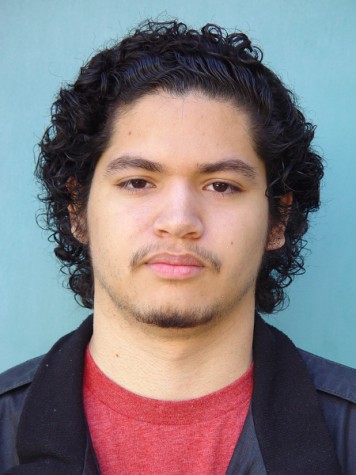L.A. Times book critic David Ulin read passages from “Cape Cod Noir,” a collection of stories that blur the line between memory and imagination while exploring the deep and inner workings of the human mind.
The presentation was held Wednesday in Kreider Hall as part of the Los Angeles Writers Series. The anthology contains 13 dark and sinister stories. Ulin is the editor for this particular anthology.
He said he chose Cape Cod because it goes against the stereotype that noir stories take place in cities and are built around crime.
“I’m always interested in the moment when writers and readers take what we expect and blow it up,” said Ulin.
He added that Cape Cod is the opposite of edgy because it’s mostly a vacation spot and that noir is mostly about desperation and daily life, which can take place anywhere.
Though not always the case, noir fiction is a style of writing that usually features a hardboiled detective investigating crime scenes. It emerged in films from the 1940s and 1950s after the Great Depression, where dramatic lighting and voice over narration became trademarks of the style.
Ulin’s story in the anthology is “La Jetée,” a name he borrowed from a 1962 French science fiction film by Chris Marker. Ulin said that the significant amount of downsizing in the L.A. Times staff was the inspiration behind his story. He wanted to write about someone losing a job and what that might generate.
As the protagonist in his story is fired from his job and he clears his desk, the story reads:
“Standing on a jetty, watching the sky grow pale and silver pink at sunset, he drifted back to that moment, emptying his drawers into the trash can, realizing that nothing he gathered in the last 5 years, nothing he accumulated, meant anything at all.”
Another story in the anthology is “Nineteen Snapshots of Dennisport” by Paul Tremblay. Ulin said the story is about a man who looks back on 19 snapshots he took on a vacation, and by looking at the photos he begins to unravel a family mystery. Another story takes place in the 18th Century and is considered to be “Colonial noir.”
The stories all take place in a different part of Cape Cod. The book is part of the Akashic Books Noir Series, which began in 2004. Each book is set in a unique location within the city chosen for the book.
Midway through the reading, Ulin began to answer questions from the audience. He was asked how he frames his stories.
“I plan out as little as I can possibly get away with because I hate planning things out,” said Ulin. He admitted that he “sucks” at writing dialogue and is more interested in the line between memory and imagination and what goes inside a person’s head.
On the topic of the digital revolution and how that affects paperback books, Ulin said he is in favor of reading books on electronic devices, but adds that it is “a great lie” that print will disappear. He believes digital and print editions of books will coexist because they each offer something the other doesn’t.
Ulin then moved on and talked about his history with writing. He said he wanted to be a writer since he was 7.
“What got me into writing is that I didn’t realize how hard it was,” Ulin said. He added sarcastically, “I was addicted to it before I realized it was going to ruin my life.”
This is the fourth year of the bi-annual reading series. GCC English instructors Jocelyn Heaney and Claire Phillips are both founders and coordinators of the reading series.
“Students love it,” said Phillips. “They love meeting authors for the first time, they like the material, they love the books … they like writing the papers. It’s demystifying and they like the tips on writing.”
Phillips said she chose Ulin for the reading series because of his knowledge and understanding of noir and because the genre reflects today’s society.
“These are very noir times,” said Phillips. “There’s a lot of desperation in the economy. It’s really good to discuss right now.”
Ulin is the author of “The Lost Art of Reading: Why Books Matter in a Distracted Time” and “The Myth of Solid Ground: Earthquakes, Prediction, and the Fault Line Between Reason and Faith,” selected as a best book of 2004 by the Chicago Tribune and the San Francisco Chronicle.
He was awarded a 2010 Southern California Independent Booksellers Association/Glenn Goldman Book Award for his work on “Los Angeles: Portrait of a City.”

